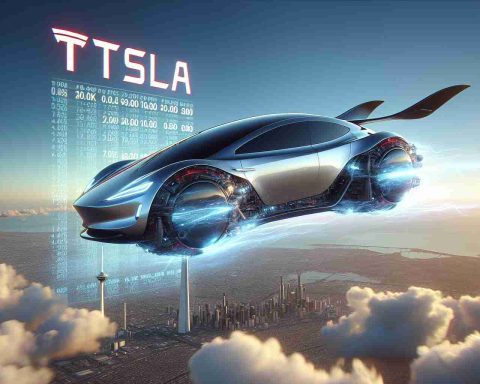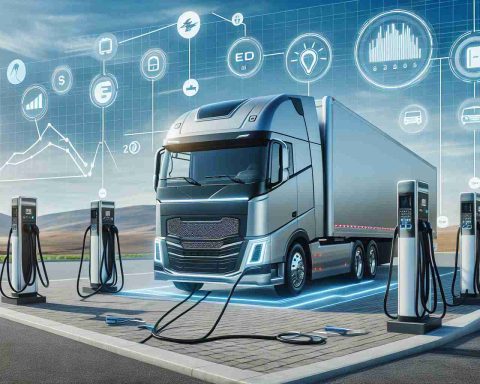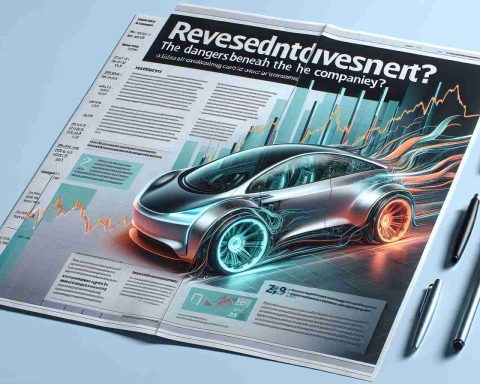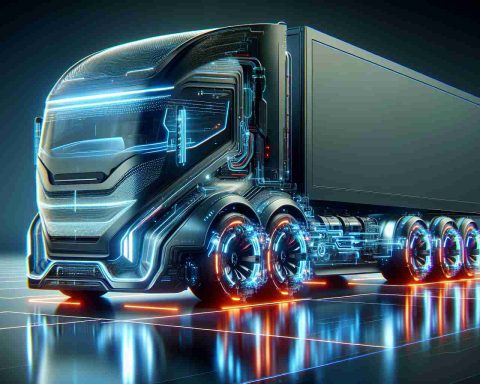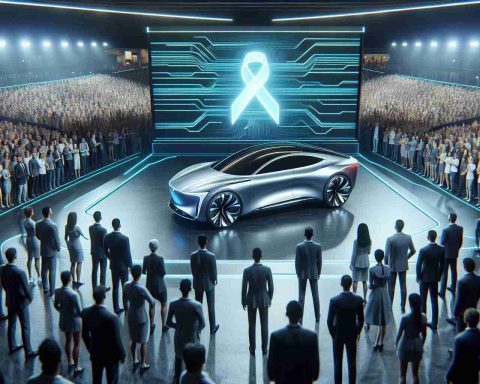Introducing the Next Generation of Electric Buses
Solaris Bus & Coach, part of the esteemed CAF Group from Spain, has made a groundbreaking delivery to BVG, the public transport authority in Berlin. This significant milestone marks the first-ever deployment of a bus equipped with a ‘battery passport’, aimed at enhancing transparency throughout the battery lifecycle.
The innovative Urbino 18 bus is powered by Solaris’ high-capacity batteries, boasting approximately 700kWh of energy. This delivery forms part of a broader contract where BVG has ordered 50 articulated electric buses, with plans for full completion by 2025. Impressively, each vehicle included in this order will carry a battery passport, indicating a strong commitment to sustainability.
In line with the latest European regulations (EU) 2023/1542, the introduction of digital battery passports will become mandatory for all electric vehicle batteries by February 18, 2027. Each passport will contain crucial details regarding the chemical composition, raw material sourcing, carbon impact, and the proportion of renewable materials involved in production.
This initiative not only enhances the accountability of battery technology but also drives the sector towards responsible resource management and efficient recycling methods, ultimately benefiting the environment and supporting the shift towards greener public transport solutions.
Revolutionizing Urban Transport: The Future of Electric Buses with Battery Passports
Introduction to Electric Bus Innovations
The advent of electric buses marks a transformative shift in urban transportation, and Solaris Bus & Coach is at the forefront of this movement. Their recent collaboration with BVG in Berlin introduces significant advancements with the deployment of the innovative Urbino 18 electric bus, which integrates the revolutionary concept of a ‘battery passport’. This initiative not only promotes transparency in the battery lifecycle but also enhances sustainability in public transport.
Key Features of the Urbino 18 Electric Bus
1. High-Capacity Batteries: The Urbino 18 is equipped with cutting-edge Solaris batteries, offering a substantial capacity of approximately 700kWh. This allows for longer operational ranges and greater energy efficiency.
2. Battery Passport Compliance: Each bus will feature a digital battery passport, which aligns with upcoming EU regulations mandating such technology by February 18, 2027. This passport will track essential information including:
– Chemical Composition: Details on the materials used in the battery.
– Sourcing Practices: Information regarding where and how the raw materials were sourced, emphasizing ethical practices.
– Carbon Footprint: Data on the environmental impact associated with the battery’s life cycle.
– Renewable Material Usage: The proportion of renewable materials in the battery’s construction, which is crucial for sustainability efforts.
Pros and Cons of Electric Buses
Pros:
– Environmental Impact: Electric buses significantly reduce emissions compared to traditional diesel buses, aiding in combatting urban air pollution.
– Cost Savings: Lower operational and maintenance costs, combined with potential government incentives for green transport initiatives, offer financial benefits for public transport authorities.
– Innovative Technology: Features like battery passports increase accountability and promote responsible sourcing.
Cons:
– Initial Investment: The upfront costs for electric bus infrastructure and vehicles can be high, potentially deterring some private or public entities.
– Charging Infrastructure: The need for significant investment in charging stations and grid upgrades to support widespread electric bus deployment.
– Battery Lifecycle Management: Ensuring effective battery recycling and reuse to minimize environmental impact once the batteries reach the end of their life.
Use Cases for Electric Buses
Electric buses can serve various urban transport scenarios, including:
– Public Transit Systems: Utilizing electric buses on city routes helps reduce emissions and supports city-wide sustainability goals.
– Campus Transport: Universities and large facilities can deploy electric buses for intra-campus transport, promoting a greener environment.
– Event Transport: Electric buses can be used for transporting attendees to events, reducing traffic congestion and emissions.
Market Trends and Future Predictions
As urban areas continue to prioritize sustainability, the demand for electric buses is expected to rise substantially. The implementation of battery passports is likely to spearhead innovation in the mobility sector, encouraging manufacturers to adopt greener practices while increasing consumer trust in battery technology.
By 2025, BVG’s commitment to integrating 50 articulated electric buses will set a benchmark for transport authorities globally, prompting similar initiatives in other cities aiming for cleaner, more efficient public transport systems.
Conclusion
The future of urban transportation is electric, and the integration of battery passports signifies a significant step toward ensuring sustainability and transparency. As cities adapt to these innovations, the impact on environmental policies and public perceptions will likely alter how urban transport evolves in the coming years. For more insights on electric vehicles and sustainable transport initiatives, visit Solaris Bus & Coach.







